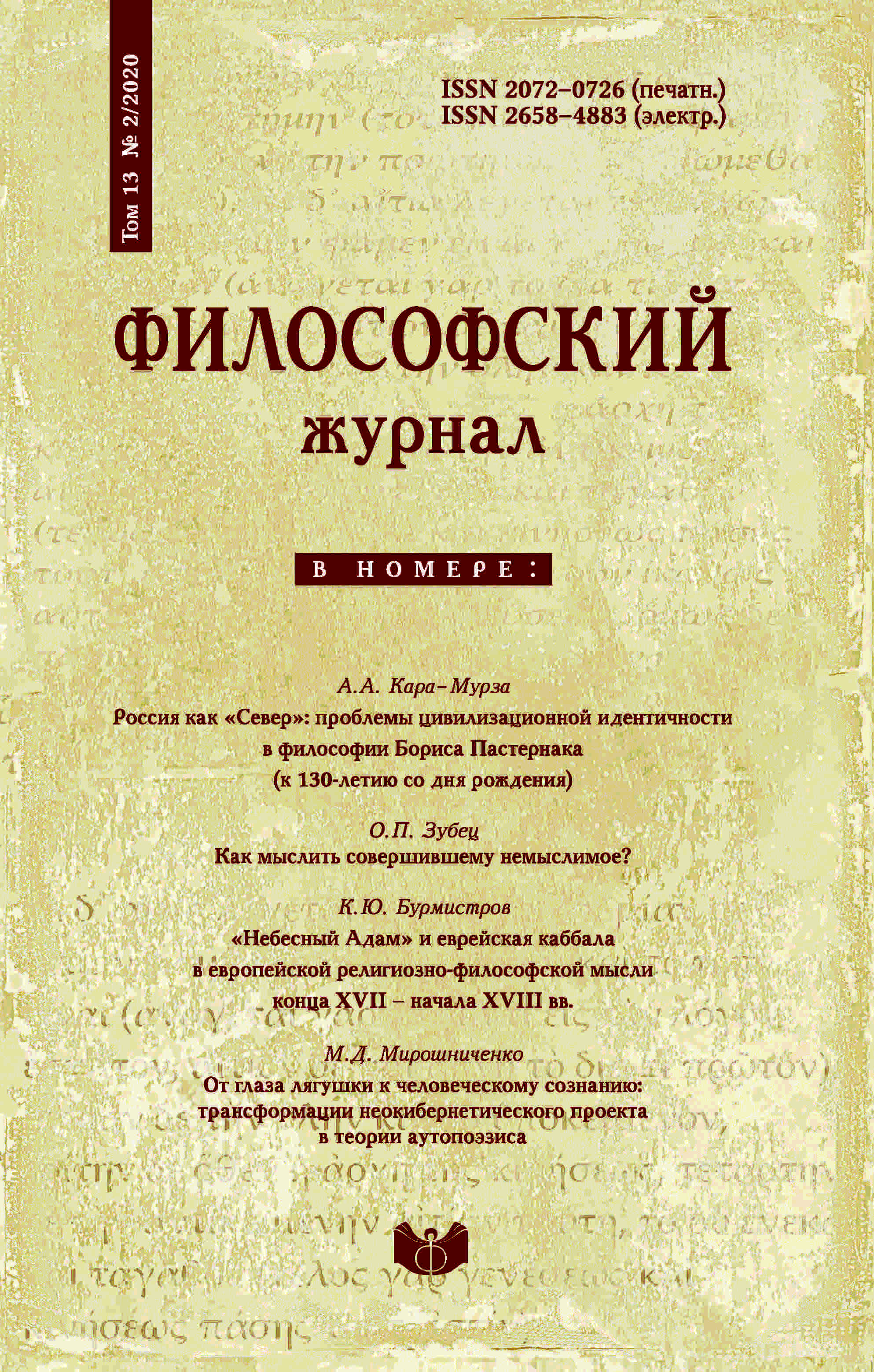How to think having done the unthinkable?
DOI:
https://doi.org/10.21146/2072-0726-2020-13-2-19-34Keywords:
ethics after Auschwitz, moral philosophy, Auschwitz, morality, thinking, unthinkable, responsibility, act, subjectAbstract
The author analyses the trend and the tension of thought defined as “ethics after Auschwitz”, revealing the discredited character of morality in general, of moral language and ethical concepts, which leads to a conclusion that a philosopher can contemplate Auschwitz within the space of morality only as their own individual and responsible act, so that their personal subject’s perspective becomes the basis of moral philosophy. Thus, moral philosophy is understood in its opposition to ethics – a study of morality based on a perspective from the outside and on the analysis of morality represented in the norms and values of a society. The question of how moral philosophy after Auschwitz can be possible is a question about the possibility of thinking that is performed by a subject that takes responsibility for Auschwitz. This question unfolds into the double problem of the possibility of a kind of thinking that 1) negates (deprives of any roots in one’s own being) Auschwitz as the culmination of sociality and 2) itself requires a foundation that would exclude the participation of reason in Auschwitz as a culmination of violence, rationally justified and instrumentally supported by reason. The author finds a foundation for such thinking in the absolute prohibition of killing which is beyond the competence of reason and is not mediated by any moral norms or values. The way to negate Auschwitz as a sociality is to identify the moral subject of an act with the act itself. Eliminating any gap between the moral subject and the act is eliminating any space that could be taken up by norms, values and knowledge, i.e. all those things that were engaged in the mechanics of Auschwitz. This can be seen as a philosophical answer to the main question: How can I negate Auschwitz and not collaborate with it? How can I avoid becoming Eichmann?






